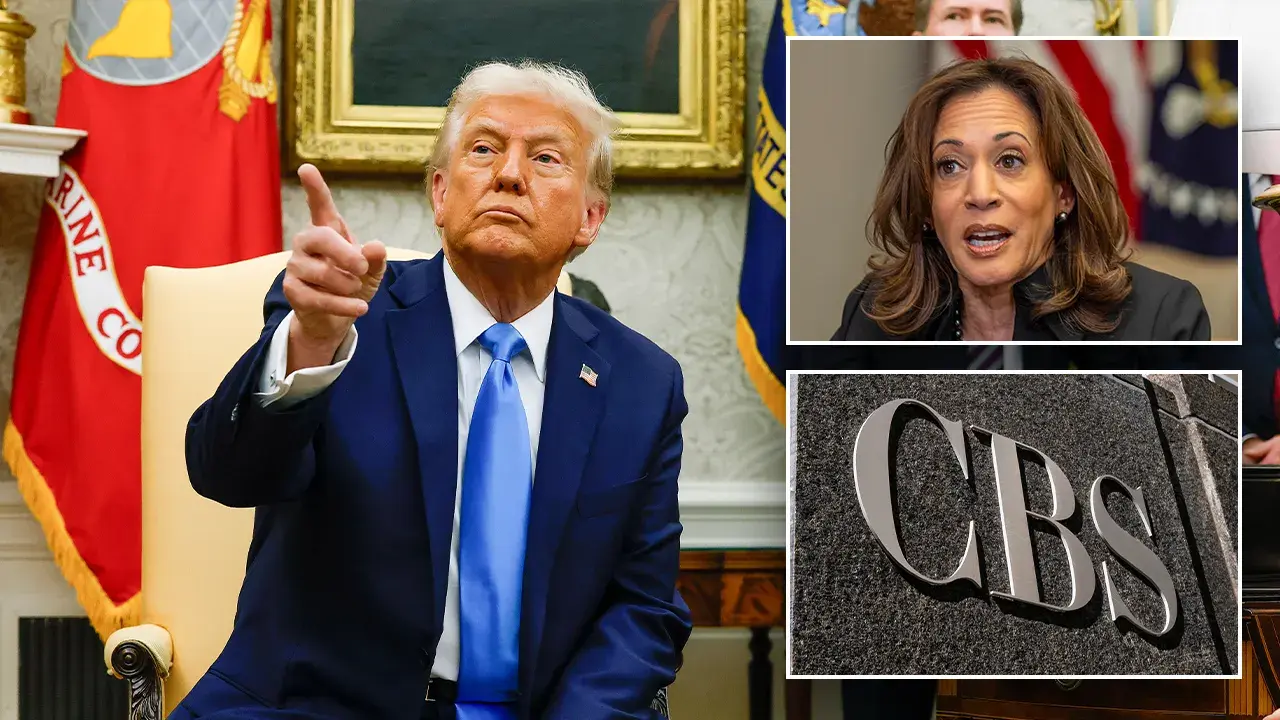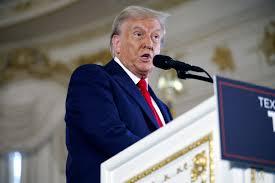Former President Donald Trump has filed a $10 billion lawsuit against CBS News, alleging that the network engaged in deceptive editing during a “60 Minutes” interview with Vice President Kamala Harris, which aired in October 2024. The lawsuit, lodged in the U.S. District Court for the Northern District of Texas, claims that CBS’s actions constituted “partisan and unlawful acts of election and voter interference” intended to mislead the public and influence the 2024 presidential election in favor of the Democratic nominee. The legal action, filed just days before the election, has sparked intense debate about media ethics, First Amendment rights, and the role of news organizations in political campaigns.

The core of Trump’s complaint centers on the editing of Harris’s response to a question about the Israel-Hamas conflict. According to the lawsuit, CBS aired two different versions of Harris’s answer. A preview clip shown on “Face the Nation” included a longer, less coherent response, which Trump’s legal team described as a “word salad.” In contrast, the “60 Minutes” broadcast featured a more concise and polished version of her answer. Trump’s attorneys argue that this editing was deliberately manipulative, designed to present Harris in a more favorable light and shield her from criticism about her communication style. The lawsuit asserts that CBS used its national platform to deceive viewers, impacting millions of voters and unfairly disadvantaging Trump’s campaign.
Trump’s legal team has demanded a jury trial and seeks damages of at least $10 billion, an extraordinary sum that underscores the former president’s aggressive stance against media outlets he perceives as hostile. The complaint also requests that CBS be barred from posting the edited segment and be compelled to release the full, unedited transcript and video of Harris’s interview. Trump’s attorneys argue that the network’s refusal to provide the complete transcript is evidence of “corrupt, partisan motives.” They further claim that the editing fundamentally altered the meaning of Harris’s response, accusing CBS of crossing the line from journalistic judgment to “deceitful manipulation of news.”
CBS News has strongly denied the allegations, calling the lawsuit “completely without merit” and vowing to defend itself vigorously. In a statement, a CBS spokesperson clarified that the interview was not doctored and that the editing was a standard practice to fit time constraints. The network explained that the “Face the Nation” preview used a longer portion of Harris’s response, while “60 Minutes” aired a more succinct version to accommodate the program’s format. “Same question. Same answer. But a different portion of the response,” CBS stated, emphasizing that the edits were made to inform viewers, not mislead them. The network also noted that Trump had declined an invitation to be interviewed on “60 Minutes,” suggesting that his accusations may be a reaction to his absence from the program.

Legal experts have expressed skepticism about the lawsuit’s chances of success. The complaint relies on the Texas Deceptive Trade Practices Consumer Protection Act, a statute typically applied to commercial transactions rather than journalistic practices. First Amendment scholars, such as Geoffrey R. Stone from the University of Chicago, have called the application of this law a “misapplication,” arguing that it does not cover editorial decisions in news reporting. Harvard Law Professor Noah Feldman went further, describing the lawsuit as an “outrageous violation of First Amendment principles” and potentially frivolous. Critics argue that the case is more of a political maneuver than a viable legal claim, especially given its filing in a conservative-leaning court in Amarillo, Texas, presided over by a Trump-appointed judge.
The lawsuit has also reignited discussions about Trump’s contentious relationship with the media. Throughout his campaign, Trump repeatedly criticized CBS and other networks, even threatening to revoke their broadcasting licenses if elected. These remarks have drawn condemnation from press freedom advocates, who view the lawsuit as part of a broader strategy to intimidate media outlets. Clayton Weimers of Reporters Without Borders dismissed the legal action as a publicity stunt, warning that it reinforces Trump’s threats to use government power against unfavorable coverage.
As the 2024 election loomed, the tight race between Trump and Harris amplified the significance of the lawsuit. Polls indicated a close contest, with Harris leading by a narrow margin. Trump’s legal team framed the CBS interview as a deliberate attempt to “tip the scales” in her favor, though they provided no specific evidence of voter impact. The controversy has further polarized public discourse, with Trump supporters decrying media bias and Harris advocates defending CBS’s editorial discretion. Regardless of the outcome, the lawsuit underscores the ongoing tension between political figures and the press in an era of heightened scrutiny and division.






